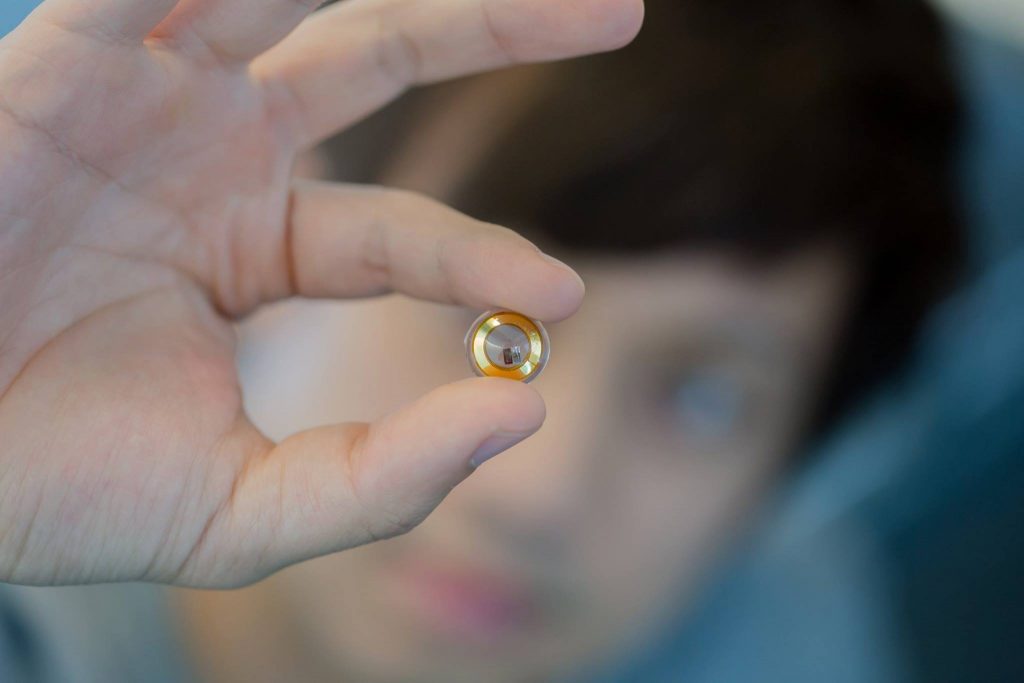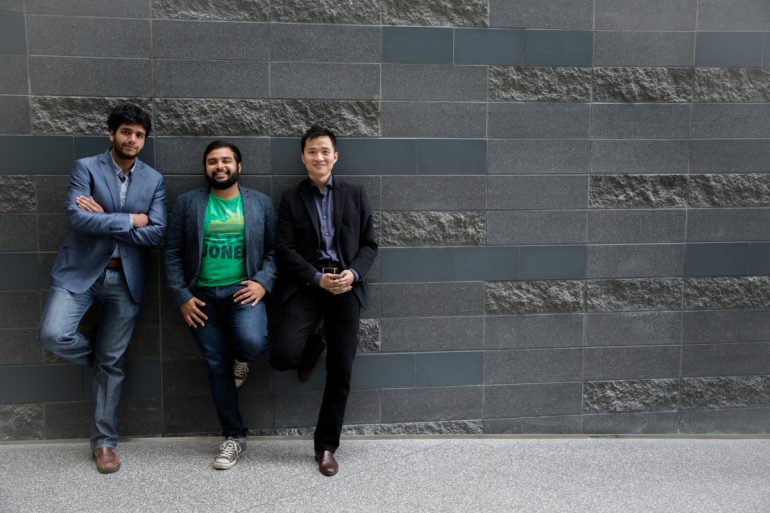Diabetes, one of the most common chronic diseases, affects 2.5 million Canadians, the cost of which is expected to reach $16.9 billion by 2020. The healthcare industry is in dire need of something to disrupt the disease’s human and economic impact.
Harry Gandhi has seen the effects firsthand. His family is prone to the disease and had a front row seat to witness how it evolves over time. Gandhi’s first job was also at a diabetes clinic, giving him a lot of time to learn about both the disease and how our health care system approaches it.
“Some of our competitors spend tens of millions in setting up lab facilities just to have infrastructure that was already handed to us.”
Gandhi is the co-founder of Medella Health, a Waterloo-based company developing a smart contact lens that continuously monitors glucose levels (with the information transmitted to a mobile device), is hoping that its contact lens will change the way we approach the disease. The company has raised $1.4 million in funding from 1517 Fund, Fifty Years Fund, Garage Capital, and BDC Capital.
“Tons of people have worked on diabetes management for a couple of years — and a couple of decades, as a matter of fact. It always comes down to the balance between invasive monitoring and continuous monitoring, and there have been many things tried,” said Gandhi, who wasrecognized as a Thiel Fellow in 2015. “Even when we started, we looked at using saliva, urine, sweat as sources of glucose. It’s a balance between getting valuable data, and things that show correlation, and how data performs as opposed to something that’s just easy to use. Ideally, we want something like air where it’s there and it’s doing its job.”
Gandhi believes that Medella may be able to change the way that people manage their health. Its smart contact lens works by integrating a small sensor, chip, and micro-antenna into the structure of the contact lens. The company says its proprietary sensor has been shown to last for up to a month, thereby reducing costs of continuous glucose monitoring.
Medella is planning to use the funding to work on the next phase of development; as it prepares to test its prototypes, the company is investing in software and manufacturing talent. The company wants to expand its current team of 15 by the end of the year, and work on software for data manipulation and storage.

Gandhi acknowledges that $1.4 million isn’t a lot for a health science company. But as a startup working in Velocity Foundry, he argues Medella can work with a rapid development mentality and find support in incubators like Communitech. Working with the two institutions has allowed the company to set up access to a wet chemistry lab, clean room, and a micro-electronics lab – facilities that at one time only larger corporations could enjoy.
“We have fairly similar infrastructure that would be available to a corporation just because of partnerships that we have with the University of Waterloo and different research organizations,” Gandhi said.
Though the company has been approached by research labs from California and Austin to work there, Gandhi said that it makes more sense for his company to remain in Waterloo, as Waterloo is home to institutions like the Waterloo Institute for Nanotechnology and the Centre for Contact Lens Research — the latter being the largest of its kind in North America. While the institutions outside of Waterloo-Region often only have some of what Medella needs, the company has everything it could ask for at home.
“Some of our competitors spend tens of millions in setting up lab facilities just to have infrastructure that was already handed to us. We can take that money to such a far extent because of existing infrastructure,” said Gandhi.
Ultimately, Gandhi said that this is only a starting point for this technology’s potential, as Medella is looking into exploring other areas like stress management or inflammation markers – since, in his words, tears are just a diluted version of blood. “We live in a model of reactive medicine. You go to the doctor only when something goes wrong,” Gandhi said. “Rather than that — and it’s usually too late at that point — we want to flip system to preventative model. What’s missing today to get us to that point is just a lack of data.”
Related: Medella Health is in the right place at the right time

